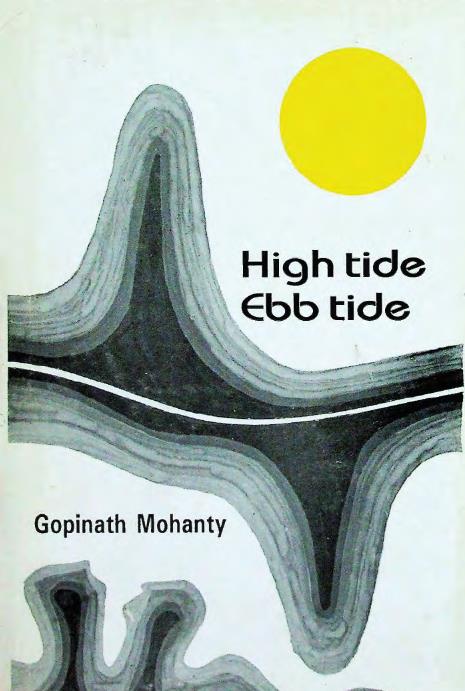High Tide, Ebb Tide: A Glimpse into Gopinath Mohanty’s Social Odyssey
Gopinath Mohanty’s novel High Tide, Ebb Tide originally composed in Odia, stands as a testament to the rich tapestry of Indian literature. Translated into English by Bikram Kesari Das and published in 1999, this poignant narrative delves deep into the socio-economic struggles faced by the coastal communities in Odisha, seamlessly weaving threads of personal and collective identity.
At its heart, High Tide, Ebb Tide captures the dichotomy of existence on the shores of Odisha, where the rhythm of the sea reflects the oscillations of human life. The title itself is metaphorical, symbolizing the highs and lows, the prosperity and adversities that govern the lives of the fisherfolk. Through vibrant imagery and lyrical prose, Mohanty immerses the reader into a world where nature and humanity are inextricably linked.
The story centers on the life of a fisherman, Fagu, who epitomizes the struggles of his community. As the narrative progresses, Fagu grapples with not just the capriciousness of the sea, but also the socio-political factors affecting his livelihood. The novel brings to light the impact of modernity and industrialization on traditional practices, illustrating how external forces disrupt the age-old rhythms of rural life.
Mohanty’s keen observation of social dynamics serves to highlight class disparities and the inherent challenges faced by marginalized communities. Through Fagu’s narrative, readers are exposed to the harsh realities of exploitation by wealthy landlords and the socio-political machinery that perpetuates their plight. The novel is replete with instances that provoke critical reflection on issues such as poverty, displacement, and the resilience of the human spirit.
The translation by Bikram Kesari Das not only preserves the essence of Mohanty’s original text but also makes it accessible to a broader audience. The challenges of translating cultural nuances are adeptly handled, ensuring that the emotional weight of the story resonates with readers unfamiliar with the Odia context. Das’s meticulous rendering captures the poetic quality of the prose while retaining its socio-political undertone, allowing English-speaking readers to appreciate the significance of the coastal community’s struggles.
High Tide, Ebb Tide is more than just a novel; it is a social commentary that urges readers to contemplate the interconnectedness of human experience and natural environments. By portraying the lives of the fisherfolk, Mohanty invites us to reflect on broader themes of identity, belonging, and survival in the face of systemic challenges.
In addition to its social relevance, the novel also explores the theme of hope. Despite the adversities faced by Fagu and his community, the story underscores the resilience of human spirit, portraying characters who refuse to be defined by their circumstances. Their ability to find joy, camaraderie, and a sense of purpose amidst struggle serves as an inspiration, emphasizing the importance of community solidarity and cultural heritage.
In conclusion, Gopinath Mohanty’s High Tide, Ebb Tide through the adept translation of Bikram Kesari Das, captures the essence of a world where tides are not merely a natural phenomenon but an intricate metaphor for the human condition. It is a compelling read for anyone interested in social issues and the complexities of life within the coastal landscapes of India, resonating with universal themes relevant to societies around the globe.
Books Info
| Books name | High Tide , Ebb Tide |
| Author | Gopinath Mohanty; Bikram Kesari Das, Tr. |
| No Of pages | 177 |
| Publisher | Larks Book |
| Publication | 1999 |
| Printed At | Abanti Printing House |
| Distributor | NA |

